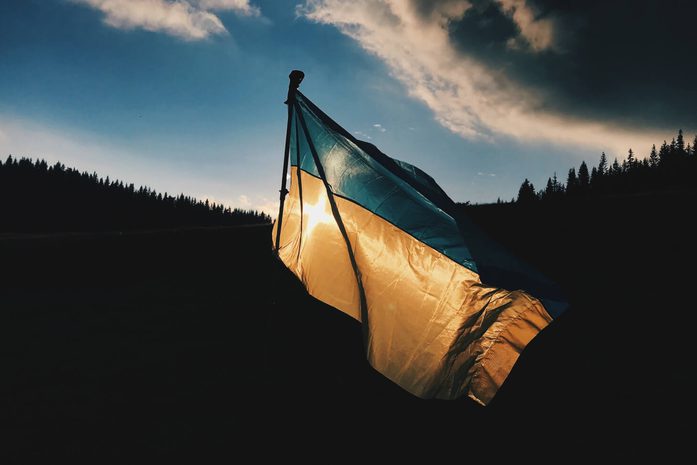
Thomas Behné Ramsnes
Partner
Stavanger
Newsletter
Published:
There is now a general import ban on Russian crude oil to the EU and Norway (including associated services), and a prohibition against maritime transport (and associated services) to third countries of crude oil originating in or exported from Russia. The price cap mechanism is essentially an exemption from the latter. It allows such maritime transport to third countries, and associated services, if the oil in question is purchased at or below the price cap. You may find further details on the price cap mechanism and EU's eighth sanctions package here, and the Norwegian implementation of the eighth package here.
The current price cap is USD 60 USE per barrel, as set by the Price Cap Coalition (including EU and G7 partners), and applies to crude oil and petroleum oils and oils obtained from bituminous minerals (CN code 2709 00). Both the EU and Norwegian sanctions include a transition period, by exempting vessels carrying crude oil originating in Russia, purchased and loaded on to the vessel prior to 5 December 2022, and unloaded at the final port of destination prior to 19 January 2023.
The EU has stated that the functioning of the price cap mechanism will be reviewed every two months to respond to developments in the market, and will be set at least 5% below the average market price for Russian oil and petroleum products, calculated on the basis of data provided by the International Energy Agency. Norway is expected to continue to follow the EU.
The ninth sanctions package imposes new restrictions on certain dual-use and advanced technologies that can contribute to the technological enhancement of Russia's defence and security sector. The list is e.g. expanded to include drone engines and electronic components found in Russian military systems.
In addition, the list of entities subject to increased dual use and sensitive technologies export restrictions are extended to 168 entities closely linked to the Russian military-industrial complex.
The export ban on aviation and the space industry is expanded to now include aircraft engines and their parts. As the export ban is applicable for both manned and unmanned aircrafts, this ban will de facto entail a ban on export of drone engines to Russia and third countries that could supply such drone engines to Russia.
Furthermore, the restrictions on goods which could contribute to enhancement of Russian industrial capacities have been expanded by including items such as generators, toy drones, hard drives, laptops, IT components, night-vision and radio-navigation equipment, cameras and lenses.
The prohibition targeting new investments in the Russian energy sector is expanded by now also banning new investments in the Russian mining sector, with exceptions for mining and quarrying activities involving certain raw materials critical to the EU.
Natural gas condensates produced in LNG production plants are not covered by the bans on Russian oil and petroleum product imports and on transport to third countries. However, in order to avoid circumvention and ensure that restricted natural gas condensate products under these prohibitions are not purchased, imported or transported into the EU or third countries, the ninth package requires anyone (legal or natural persons) to notify the sanction authority of its state of all transactions for the purchase or transfer into third countries of natural gas condensates of subheading CN 2709 00 10 from liquefied natural gas production plants, originating in or exported from Russia. The reporting shall include information on volumes.
EU nationals are now prohibited from holding any posts in the governing bodies of all state-owned or controlled legal persons, entities or bodies located in Russia. A new transaction ban is also put in place for any transaction with the Russian Regional Development Bank. Furthermore, this latest package imposes an asset freeze against two additional banks: Credit Bank of Moscow and Dalnevostochniy Bank.
To combat propaganda and mass disinformation, the EU has suspended the broadcasting licences of four additional media outlets: NTV/NTV Mir, Rossiya 1, REN TV and Pervyi Kanal. The four newly sanctioned media outlets are under the direct or indirect control of the Russian Federation and have been known to legitimize Russia's aggression and undermine support for Ukraine. The four media outlets can still carry out activities in the EU, such as research and interviews, as this is protected by the Charter of Fundamental Rights.
In addition, this ninth package contains a prohibition regarding the provision of advertising services, market research, public opinion polling services and technical testing and analysis services to the Government of Russia or any legal person, entity or body established in Russia.
The ninth package includes the adding of around 200 persons and entities to the blocking and freezing lists. This includes e.g. Credit Bank of Moscow, JSC Dalnevostochniy Bank, as well as several entities operating in the Russian defense sector.
The ninth package amends, extends and adds provisions regarding derogations from the restrictions. This includes exemptions for divestment/wind-down from activities in Russia. The competent authorities may by derogation authorise exemptions from the export restrictions set out in the sanctions Regulations by allowing supply of listed goods and technologies until 30 September 2023 if such supply is strictly necessary for the divestment from Russia or the wind-down of business activities in Russia and (i) the goods/technologies are owned by a EU person/entity, (ii) the competent authorities have no reasonable grounds to believe that the goods might be for a military end-user or have a military end-use in Russia, and (ii) the concerned goods and technologies were physically located in Russia before the relevant restrictions entered into force.
Another example is a derogation related to agricultural and food products. No prohibitions are in place to limit or otherwise specifically target the trade in agricultural and food products between third countries and Russia. However, the ninth sanctions package include a derogation allowing the unfreezing of assets of, and make funds and economic resources available to, certain specified individuals who held a significant role in international trade in agricultural and food products, including wheat and fertilisers. This derogation is meant to help alleviate the food insecurity faces by so many as a consequence of Russia's war of aggression against Ukraine.
Navigating sanction risks in an increasingly complex and rapid changing regulative environment is challenging. We also see an increased risk in actors engaging in circumvention of international sanctions. Norwegian entities that are directly or indirectly exposed to business partners in risk intense jurisdictions should conduct a sanctions risk assessment and implement targeted measures such as screening of counterparties and beneficial owners and negotiating robust compliance clauses in agreements. Having adequate and risk-based internal policies and procedures in place to ensure compliance with sanctions and other compliance risks such as money laundering and tax evasion is more important than ever.
Schjødt's sanctions team offers guidance on the increasingly complex and frequently changing sanctions regulations, including how to ensure compliance with the same.
Please note that these updates do not constitute legal advice, nor do they provide an exhaustive description of all sanctions in place and the exemptions. Any person or entity involved in business activities in any way related to Russia, Belarus or Ukraine should carefully assess how they are affected by the sanctions.
